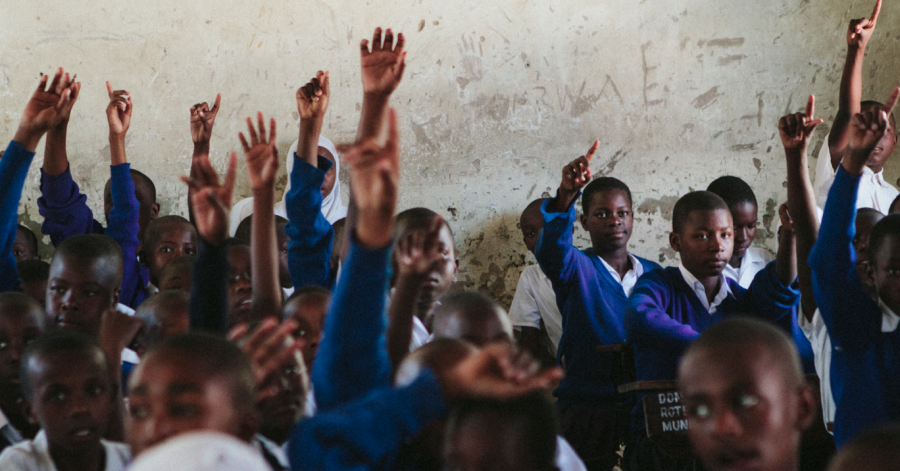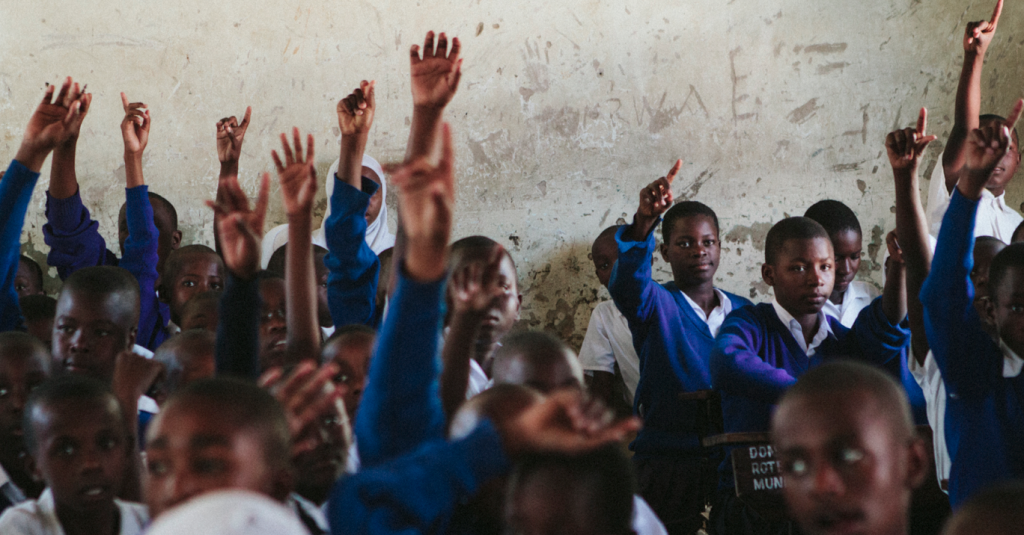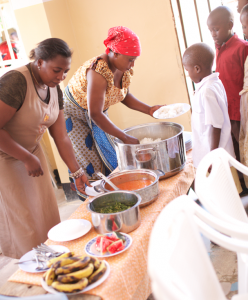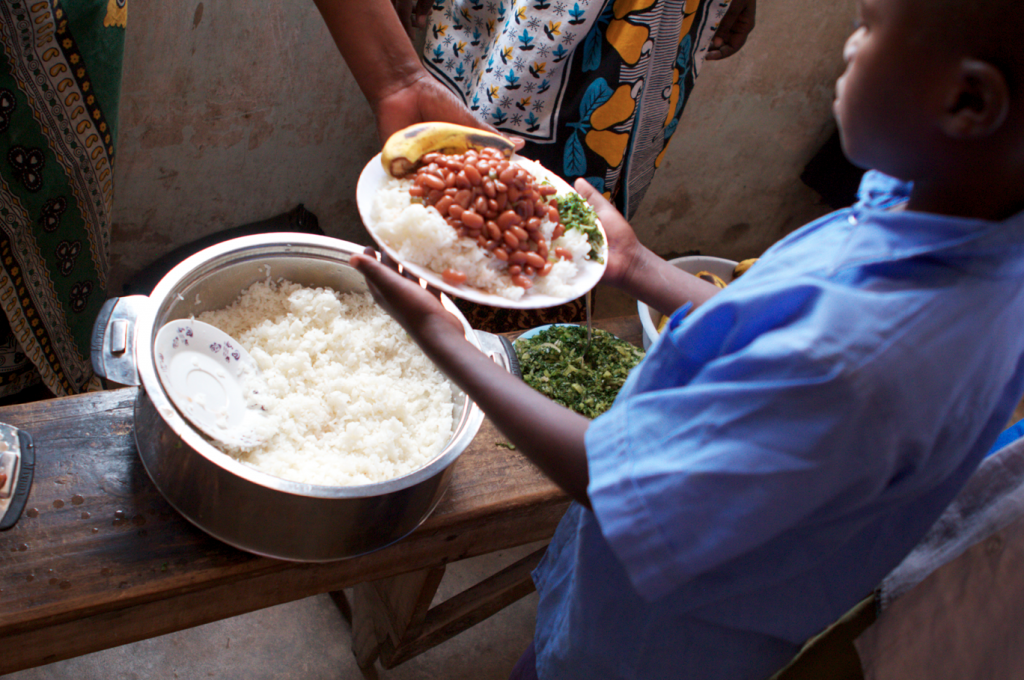
07 Mar If You’re Hungry, Raise Your Hand
It is one of the first skills children learn at school. If you want to say something, if you know the answer, if you need attention, raise your hand. Be identified. Say, “I’m here.”
For the children in the Nutrition Program at Grace and Healing Ministries in Dodoma, Tanzania (GHMD), being identified impacts not only their school experience but every area of life, because it means their HIV status is out in the open.
GHMD started the Nutrition Program with the help of funds from Rice & Beans Month. A hearty balanced meal is served at the ministry center several days a week to combat the life-threatening effects of poverty and HIV infection. Yet even with huge improvements in the kids’ physical health and social support systems, the staff saw one significant limitation:
Serving the meal at the center means that the children have to leave school to come eat it.
One primary school is some distance from the center, and neither GHMD staff nor the schoolteachers want the kids choosing between food and education. So they worked together on a solution.
There was already a cook hired to prepare meals for the schoolteachers, so GHMD now supplements that budget, and additional food is prepared for the Nutrition Program children on site. It took a lot of effort to coordinate the details, but the hardest part for the GHMD staff was letting someone else prepare food for “their” kids. Mariamu, a GHMD social worker, went so far as to visit the school, evaluate the menu, and taste the food before the children were served.
As a mom of school-aged kids, I understand that protective instinct and admire their tenacity to create, improve, and supervise the Nutrition Program without options like packed lunches or school cafeterias. These mamas are determined to see their kids grow up with full bellies and sharp minds, thriving in spite of the multi-layered issues presented by HIV.
Esther Muhagachi, Program Director at GHMD, knows the risks of stigmatization for these kids, but also knows that to hide HIV is to eventually die from it. In contrast to our western emphasis on confidentiality in matters of health, their focus is on teaching children and families to “Live Positively with HIV” and get the care and support they need. She explains:
At the primary school, there is a teacher who deals with kids who have health problems. That is the teacher we talk to and explain the case of our kids. They are aware of all HIV-positive kids, and they went through training about stigma reduction. Sometime back, there was stigma at school. But nowadays, there is no stigma. Also, we really appreciate working hand-in-hand with the government. We have the Social Desk at the police station where we report all concerns about children’s rights, and they are so active and very helpful.
The sacrifice of those who participate in Rice & Beans Month combined with the tireless and innovative work of the GHMD staff brings these children out of the shadows cast by poverty, hunger, and HIV. Now, they are identified as important, welcome, and loved.
“Do you have a question? Do you have a need? If so, just raise your hand.”
________________________________________________________________________
Article adapted from Hope Is Alive, a quarterly magazine publication of Lahash International. You can sign-up online to receive this free magazine.





